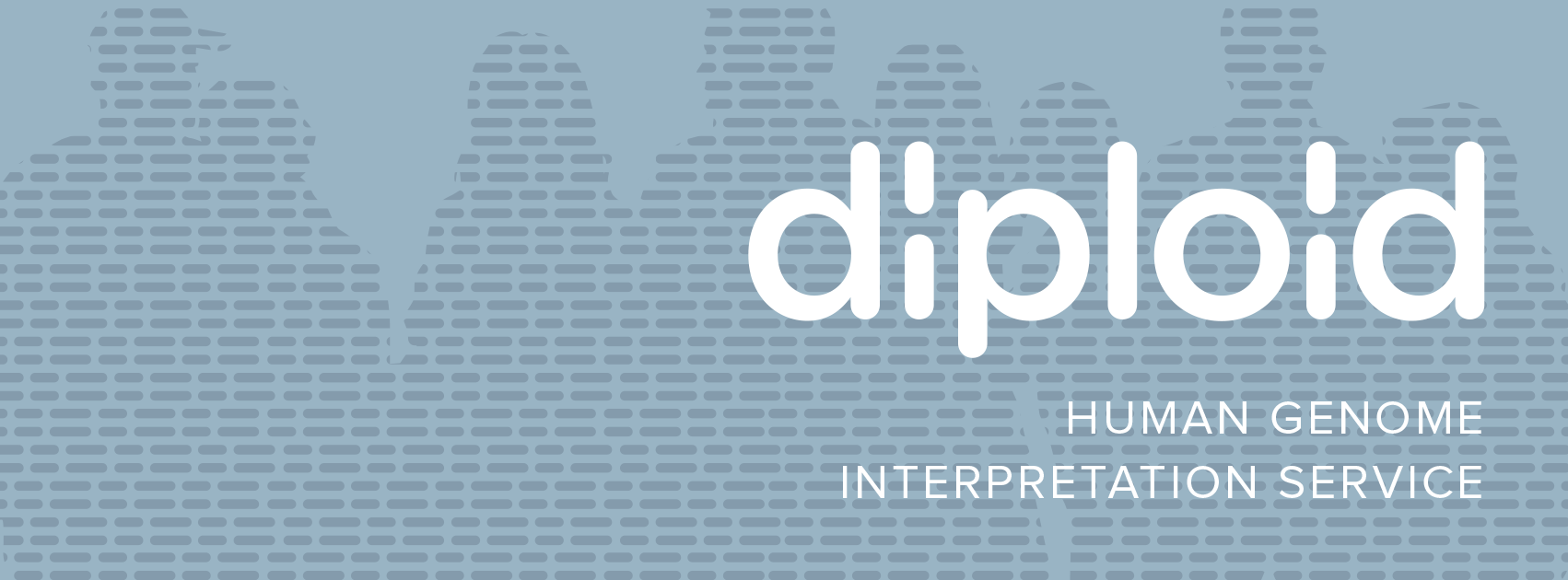The genomics market is expected to reach USD 19.99 Billion by 2020, growing at a CAGR of 9.9% during the forecast period of 2015 to 2020. The growth of the overall market can be contributed to an increasing number of start-up companies; and a growing use of exome genome sequencing in diagnostics.
At the same time, the high cost of genomic sequencing instruments/systems is also likely to dampen the growth of the market during the forecast period.
Diploid is one such European genomics startup who want to address the challenges of rare disease diagnostics through the whole genome analysis, which can generate actionable results for healthcare professionals and patients. They also believe that application of Artificial Intelligence plays a vital role in exploring the potential of genome diagnostics.
Research Stash had a chance to talk with Diploid team to learn more about their inspiration and future plan of their journey towards leveraging the Artificial Intelligence in the areas of genome diagnostics.
Tell us about yourself and what inspired you to build Diploid?
Diploid is a Leuven-based genomics start-up that aims to revolutionize healthcare by bringing genome diagnostics into daily clinical practice. Peter Schols, CEO of Diploid, founded the company in 2014 out of his passion for both software development and genetics. Diploid is focused on helping hospitals and commercial labs to provide a diagnosis for rare genetic conditions.

We go from the raw genetic data to a diagnosis, signed by an MD, in about 7 days. We focus on genome analysis software and clinical interpretation for rare disease diagnostics and preventative screenings by combining expertise in human genetics, software development, artificial intelligence, and design. Just a few weeks ago we’ve launched Moon, a new software package that within minutes, diagnosed patients who suffer from a rare disease, using artificial intelligence.
What are the greatest challenges you faced while pursuing the idea of Diploid?
It’s not always easy to introduce innovation and new tools into healthcare systems, but step by step we are getting there. Integrating genomic applications into daily clinical practice can truly make a huge difference for every patient.
What is current focus market and who are your potential competitors?
We currently strongly focus on further automation of the genome interpretation process using artificial intelligence. In order to keep up with faster and cheaper sequencing, it is important to also significantly reduce the time and costs needed for the interpretation.
We, therefore, target large genome centers and nationwide genome programs, but also companies developing software and hardware for genome analysis. By embedding Moon into their existing variant analysis software, they will be able to add intelligence to their current diagnostic processes, offering significant cost and time savings per patient.
https://www.youtube.com/watch?v=Zns3M3IZ1Nc
Video: Short introduction movie demonstrating Moon’s performance on a real diagnostic case
Diploid offers genome analysis software and interpretation services that are quite unique worldwide. Unlike many other companies developing genome analysis software, Diploid has this in-house clinical genetics expertise that allowed us to make top-notch software solutions for genome diagnostics.
To the best of our knowledge, we are currently the only company worldwide providing software that is able to autonomously provide a correct diagnosis within minutes in over 90% of previously solved cases.
How much are the products/services priced at? How has the response been so far?
A complete interpretation service, starting from patients’ human genome data and phenotypic information going all the way to a clear clinical report costs €490 for a single sample. Based on volume, we offer significant discounts. We provide these services to large labs such as Sengenics, Otogenetics, Macrogen, GenomeScan, and others.
Our software solutions for genome analysis are more tailored per client and therefore pricing highly depends on the specific needs of the client.
What’s Diploid’s international presence now? What’s the goal? How does this relate with revenue?
We’re an international company, offering our services and software to clients worldwide. In fact, the majority of our revenue comes from outside the EU.
What are your achievements so far? And Anything exciting happening in the near future?
A key achievement for our company was participating in Genomics England’s annotation assessment and being selected as one of the winners. Genome interpretation companies had to identify the causal variants in several patients affected by rare diseases. Only four companies were able to solve all of the cases, Diploid was one of them.
This underscored that our clinical genome interpretation services and software are among the best worldwide. For the future, we are looking forward to making Moon available to geneticists worldwide, allowing them to easily diagnose patients. We’ll continue improving the Moon algorithm and also extend it so that it can be applied in many health domains, including e.g. preventative screenings.
Learn more about Diploid’s services and Software


